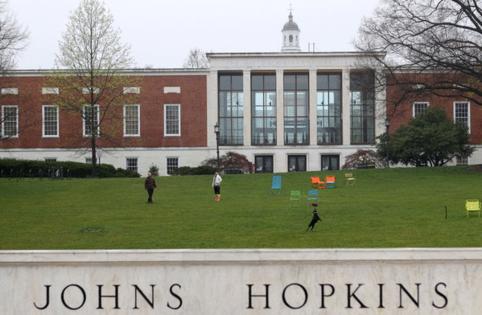Commentary: What universities owe America's future leaders
Published in Op Eds
As a nation, we are failing to prepare citizens for leadership in our constitutional republic. According to a September 2023 Pew Research Center study, 72 percent of Americans rate the overall quality of political candidates in recent years as bad, while only 26% look favorably on the candidate pool.
Our waning confidence in public leadership choices has occurred for various reasons. One is that many talented citizens opt out of public service for quieter, often more lucrative, vocations. There is nothing new about that. A recurring phenomenon, surely acute today, is the rancor and nastiness of our politics, which surely turns many would-be political candidates away from filing. And the study of civics has long been sidelined in our K-12 schools, depriving countless Americans of a basic awareness of their rights and responsibilities as citizens.
Less acknowledged, but no less consequential, is our society’s failure to prepare future political leaders through our institutions of higher education.
The American Council of Trustees and Alumni, a leading group advocating higher education reform, published a poll earlier this summer demonstrating college students’ shocking lack of civic knowledge. They found, for instance, that most college students did not know that the vice president also serves as the president of the Senate. Almost a third of those ACTA surveyed also wrongly believed that senators serve four-year terms, and less than a third could identify Congress as the branch of government that declares war.
The trouble goes deeper than neglect of basic factual knowledge about the American government. Students aren’t just failing to learn about how our government is structured, they’re also failing to understand why the Founders designed our Constitution the way they did. We are falling short when it comes to teaching the principles at the heart of the American experiment such as self-government, federalism, or equality and human dignity.
While many universities have emphasized experiential civic learning that exposes them to aspects of public life through programs on civic engagement, American higher education is failing to teach the core knowledge that is essential to political leadership in a free society.
Political science departments focus far more on quantitative measurements of election data and political behavior than they do the teaching of wisdom about statesmanship. History departments tend to favor social history — often focused on categories of identity like race, class and gender — over political history as areas of study. Public policy courses encompass statistical analysis, economics and public policy research skills, but they tend to gloss over the ethical, historical and philosophical considerations that are important for a higher statesmanship in the policy realm. Those who aspire to political leadership roles and seek coursework on political leadership will be disappointed in the scant offerings at most universities.
If Americans wish to reinvigorate ethical public leadership and statesmanship, they must invest in the study and teaching of these subjects in our universities. The humanities and social studies are dramatically underfunded at most institutions — state legislatures, higher education governing boards and university presidents should take notice and work to change the situation. A few years ago, Johns Hopkins University President Ronald Daniels issued a clarion call to refocus our universities on civic preparation. His book was aptly titled "What Universities Owe Democracy.”
Thankfully, some university leaders and professors, at places like Johns Hopkins, Stanford and Purdue, are ensuring that civics is included in the university curriculum. And legislatures are working on this issue by establishing schools of civic thought at public universities, now in eight states. These independent colleges, departments, and centers are revitalizing liberal arts education by providing additional funding to fields in the humanities and social sciences that have faced budget cuts and declining student interest over recent decades. They are built on the radical principle that, for Americans, the best civic education is a kind of liberal education.
If academic scholars in political science, history, public policy and related disciplines teach statesmanship, students will respond favorably. For example, a 2024 course at Princeton taught by political scientist Shilo Brooks, titled “The Art of Statesmanship and the Political Life,” proved to be one of the most popular courses in the entire university, enrolling 250 students. College students are hungry for the kind of education that will prepare them for leadership — their schools simply have to begin offering it again.
In times of immense political division and social turmoil, it is easy to become discouraged or cynical. But America’s future leaders hold immense promise. If we give them the intellectual tools to lead, we should have confidence that they will rise to the challenge of statesmanship in a free society.
____
Zeiger is president of the Jack Miller Center, an educational venture to advance the history, documents and ideals we hold in common as Americans.
_____
©2024 The Fulcrum. Visit at thefulcrum.us. Distributed by Tribune Content Agency, LLC.




























































Comments